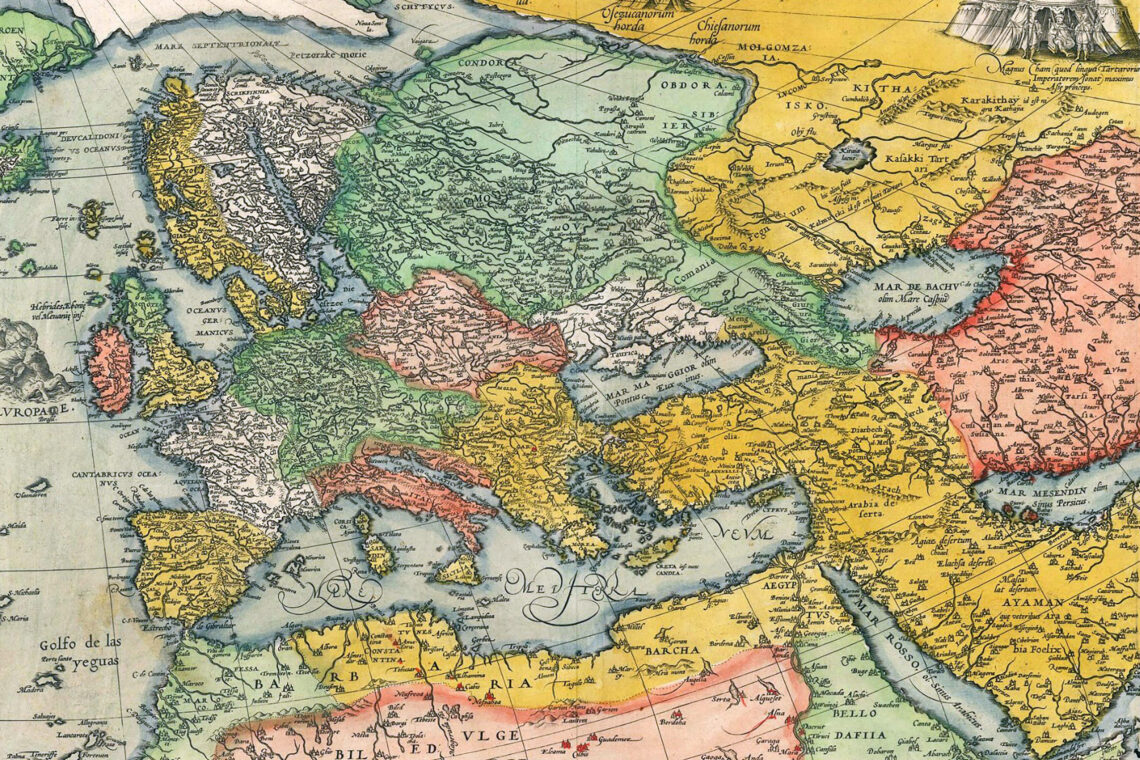On December 15th, 2005, I sat at the Mevlana Cultural Center in Konya, Turkey and raised my hand in prayer with the shaykh at the end of the sama’ ceremony, performed by what are known in the West as “whirling dervishes.” Except for the occasional mention of Mawlana Rumi, the founder of the order; Shams al-Din Tabrizi, his mystical mentor; and the Prophet Mohammed, I didn’t understand much of what was being said. But my wife and I felt the sweetness of the Spirit and the power of a community bonded by faith. That moment of final prayer came after a member of the Mevlevi musical ensemble, a young mujawwid, had recited from the Qur’an with such mesmerizing power that I could almost see his angelic voice rise to heaven. Hundreds of spectators in the state-of-the-art auditorium listened and prayed intensely. Looking at them, I was reminded of the Sufi mantra that as long as a wali, shaykh, or qutb is in the community, God will spare the land and its people. It is fair to say that, for me and my wife, the sama’ event in Konya was one of the most powerful spiritual experiences we had ever had.
The following day, we took the bus to Ankara for the specific purpose of visiting the Ataturk mausoleum. Going through the exhibit in the order presented, and reading as much as I could, I had to fight back tears on at least two occasions. The courage and sacrifice of the Turkish people under the leadership of Kemal Ataturk is certainly one of the greatest epics of history, more powerful that the mythical battle of Troy, or even the capture of Constantinople by Muslims in 1453. Dozens of schoolchildren streamed through the mighty halls of the mausoleum; people took pictures by Ataturk’s elevated marble tomb; off-duty soldiers posed for photos with their fiancées or wives on the steps of the edifice; and the elderly walked through museums and show rooms with determination and pride. Coming from the United States, I was curious to see that the gigantic flagpole that looks down on Ankara at the gate of the mausoleum complex was manufactured in the U.S.A. by a Turkish-American. I eagerly bought The Great Speech and other materials from the souvenir shop at the end of our visit. Never in my life had I felt the difference one man can make in the history of a nation—the closest example I can think of, George Washington, doesn’t come close. One would have to combine Washington, Thomas Jefferson, and Benjamin Franklin to get someone of the stature of Ataturk.
My experiences in Konya and Ankara—one the legacy of Islam, the other the outcome of a Herculean act of social engineering –seem to inform the national psyche and the ambiguous politics of the nation at large. Konya, one of the oldest human settlements in the world, and one of the earliest Islamic communities in Turkey, made it clear that, for many Turks, spiritual salvation is the ultimate quest in life. Ankara seemed to suggest that there is no salvation in a weak nation, that military and economic strength are vital to the preservation of a community, even if the cultural foundations of this community have to be radically altered.
I guess one would have to visit Istanbul to realize that neither the Ottoman past nor the unexamined secular present offer ideal solutions. The sultans ultimately led Muslims into defeat, just as unfettered capitalist development and a confused sense of self could hobble the march of modern Turkey. But that’s a story for another time. The thing to remember, at least for me, is that much of the future of the world will be determined by how the great nation of Turkey harmonizes the various components of its complex history.




Comments are moderated by the editor and may not appear on this discussion until they have been reviewed and deemed appropriate for posting. All information collected is handled in a manner consistent with our privacy policy.